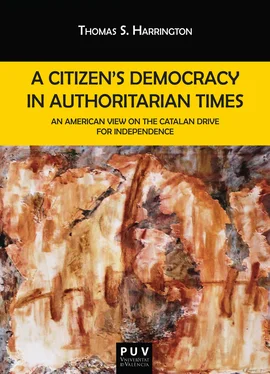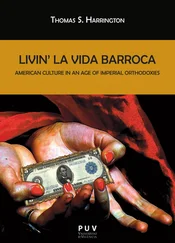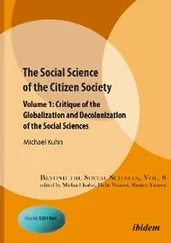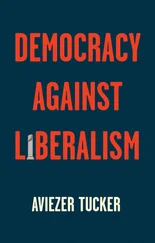In the wake of the Piqué and San Gil’s ponencia, Aznar himself has stressed that the time has come for Spaniards to live “sin prejuicios, ataduras ni cuentas pendientes con la historia” (Huesca s.n.). These are certainly strange words from a man whose administration has shown such a keen interest in Cánovas, Academiás de la Lengua, the Monasteries at San Millán de la Cogolla and the “vertebrated” teaching of history in public schools. What he really means, of course, is that non-Castilian Spaniards should dispense with their “unhealthy” obsession with the past and cede to the “natural fact” of Castilian historical supremacy. In so doing, he is tapping into a deep well of Castilian exceptionalism which has been institutionalized to the point of being imperceptible to many who uphold its main aims. But while it may be imperceptible to him and his core group of support, the reality of Castilianism’s hegemonic logic will never disappear for most on the periphery. He is of course free to engage in the politics of the trágala. But before employing the sword that is concealed behind the colorful muleta of his Patriotismo Constitucional, perhaps he should reflect a bit more on the scant level of lasting success achieved by his ideological forebears. If Cánovas and Primo, whose regimes had far more repressive machinery at their disposal, could not eradicate the “unnatural” reality of the so-called peripheral movements of national identity, why should he expect to be able do so now? Would it not be easier for everyone involved if the Neo-Castilianists of today would simply admit, and base any and all any negotiations over the future of Spain’s civil society, on the unassailable fact that today’s Spain contains not just three, but four major, historistically-defined movements of national identity.
Works Cited
Almanach des noucentistes. Barcelona: Horta, 1911.
Almirall, Valentí. Lo Catalanisme. Barcelona: Edicions 62, 1979.
Anderson, Benedict. Imagined Communities: Reflections on the Origin and Spread of Nationalism. London: Verso New Left Books, 1983.
Arana Goiri, Sabino de La patria de los vascos: antologia de escritos politicos. San Sebastian: R&B Ediciones: Haranburu Editor, 1995.
Aranzadi Etxeberria, Engracio de. Ereintza: Siembra del nacionalismo vasco 1894-1912. San Sebastian: Editorial Auãmendi Argitaldaria, 1980.
—. La nacion vasca. Bilbao: Viuda. e Hijos de Grijelmo,1918.
Azurmendi, Mikel. “Etnicidad y violencia” Claves de la razón práctica 43 (junio 1994) 28-41.
—. La herida patriótica Madrid: Taurus, 1998.
Brañas, Alfredo. El regionalismo. Barcelona, 1889. facscimile version La Coruña: La Voz de Galicia, 1982.
Cánovas del Castillo, Antonio. “Discurso sobre la nación: inauguración del curso del Ateneo de Madrid, noviembre de 1882” Biblioteca virtual Miguel de Cervantes. < http://cervantesvirtual.com/servlet/SirveObras/348670484161510472560102/p0000001.htm>
Castellanos, Jordi. “Gaudí, arquitecte de Déu” in Intel.lectuals, cultura i poder: entre el modernisme i el noucentisme. Barcelona: La Magrana, 1998. 9-71.
Carner-Ribalta, Josep. De Balaguer a Nova York passant per Moscou i Prats de Molló. Paris: Edicions Catalanes de Paris, 1972.
Castro, Rosalía de. Poesías. Vigo: Patronato de Rosalía de Castro, 1973.
“Constititución Española” Congreso de Diputados < http://www.congreso.es /funciones/constitucion/indice.htm>
Curros Enriquez, Manuel, Aires da miña terra e outros poemas. Vigo: Galaxia,1985.
Dendle, Brian “Unamuno en Barcelona: Una entrevista desconocida de 1906” Cuadernos de Investigación Filológica (Logroño) XV (1989) 159-162.
Even-Zohar, Itamar 1994. “Culture Planning and the Market: Making and Maintaining Socio-Semiotic Entities.”
—. “Culture Repertoire and the Wealth of Collective Entities.” In Under Construction: Links for the Site of Literary Theory. Essays in Honour of Hendrik Van Gorp. Ed. De Geest, Dirk et al. (Leuven: Leuven University Press) 389-403.
—. “The Making of Culture Repertoire and the Role of Transfer.” Target, 9 (2), 1997. 373-381.
—. “The Role of Literature in the Making of the Nations of Europe: A Socio-Semiotic Examination” Applied Semiotics / Sémiotique appliquée (AS/SA) 1, 20-30.
Fabregat, Ramon, ed. Macia, la seva actuacio a l’estranger. Mèxic: Edicions Catalans de Mèxic, 1952.
Fox, E. Inman. La invencion de Espana: nacionalismo liberal e identidad nacional. Madrid: Catedra, 1997.
Gondar Portasany, Marcial. Crítica da razón galega. Coruña: A nosa terra, 1994.
Habermas. Jurgen. The Inclusion of the Other. Cambridge: MIT Press, 1998.
—. The Postnational Constellation. Political Essays translated, edited and with an introduction by Max Pensky, Cambridge: Polity Press, 2001.
Harrington, Thomas S. “Agents of an Intersystem: Contributions of the Cuba-Based Diaspora to the Construction of the Nation in Galicia and Catalonia.” Catalan Review (in press)
—.”Catalanism in the Portuguese Mirror: Skirmishes Between “Unitarians” and “Pluralists” for Control of the Movement (1900-1925)” Revista de Estudios Hispánicos 35(2001) 257-280.
—. “Invenciones de Españas.” Claves de Razón Práctica 82 (mayo de 1998): 50-51.
—. “Laying the Foundations for an Integrated and Multi-polar Approach to the Study and Teaching of Peninsular Culture: Labanyi and Graham’s Spanish Cultural Studies: An Introduction.” Siglo XX/Twentieth Century 14, 1-2 (1996): 181-192.
—.”Literatura e nación.” Grial 134 (1997): 379-392.
—. “Los hispanistas de EE.UU., el ‘Boletín’ y la vieja España.” Suplemento de Arte e Ideas. La Vanguardia (Barcelona) 11 febrero 2000.
—.”Risco and Portugal: Contacts Previous to the Institutional Consolidation of Galician Nationalism” Galician Review (in press)
Huesca, José, “Aznar condena la exaltación de la diferencia” La Vanguardia Digital 5 February 2002 < http://www.lavanguardia.es>
Jardí, Enric. Francesc Macià. Barcelona: Edicions 62, 1991.
Juaristi, Jon. El bucle melancólico: historias de nacionalistas vascos. Madrid: Espasa Calpe, 1997.
—. Sacra Némesis: nuevas historias de nacionalistas vascos Madrid: Espasa, 1999.
Laporta, José, Alfonso Ruiz Miguel, Virgilio Zapatero and Javier Solana. “Los orígenes culturales de la Junta para Ampliación de Estudios” Arbor, Tomo CXXVI., número 493 (1987) 17-87.
“Les bases per la constitució regional catalana” (Les bases de Manresa) in González Casanova, J.A. Federalisme i autonomía a Catalunya 1868-1938. Barcelona: Curial, 1974. 536-539.
Máiz, Ramon. Alfredo Brañas: O ideario de rexionalismo católico tradicionalista. Vigo: Galaxia, 1983.
Menéndez y Pelayo, Marcelino. Estudios de critica literaria. Madrid: Sucesores de Rivadeneyra, 1893.
—. Historia de las ideas estéticas en España. Madrid Hernando, 1928.
—. La conciencia española. Recopilación de Antonio Tovar. Madrid: Ediciones y Publicaciones Españolas, 1948.
Murguía, Manuel. Los Precursores. Buenos Aires, 1944.
—. Política y Sociedad en Galicia. prólogo de Castelão Madrid: Akal, 1974.
Nebrija, Antonio. “Prólogo a la gramática de la lengua castellana” in Proyecto ensayo hispánico. Ed. José-luis Gómez-Mártinez < http://ensayo.rom.uga.edu/ antologia/XV/nebrija>
“Origen y constitución, La fundación, fines” Fundacion San Millán de la Cogolla. < http://www.fsanmillan.org/marco2.htm>
Ortega y Gasset, José. “España invertebrada” Obras Completas III Madrid: Revista de Occidente, 1947-1983 35-128.
—. “Pidiendo una biblioteca” (1908) Obras Completas I. Madrid: Revista de Occidente, 1947-83 81-84
Читать дальше












